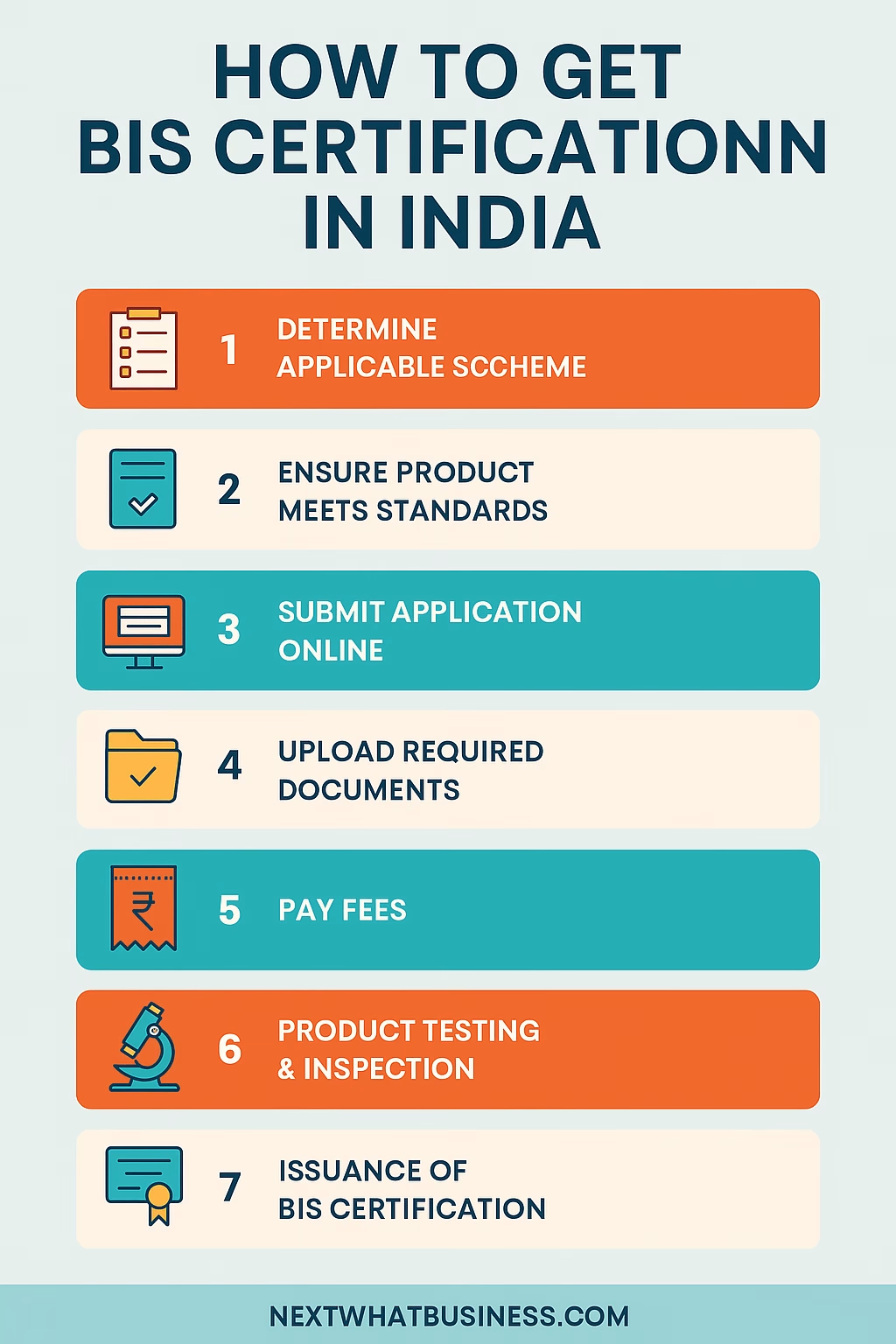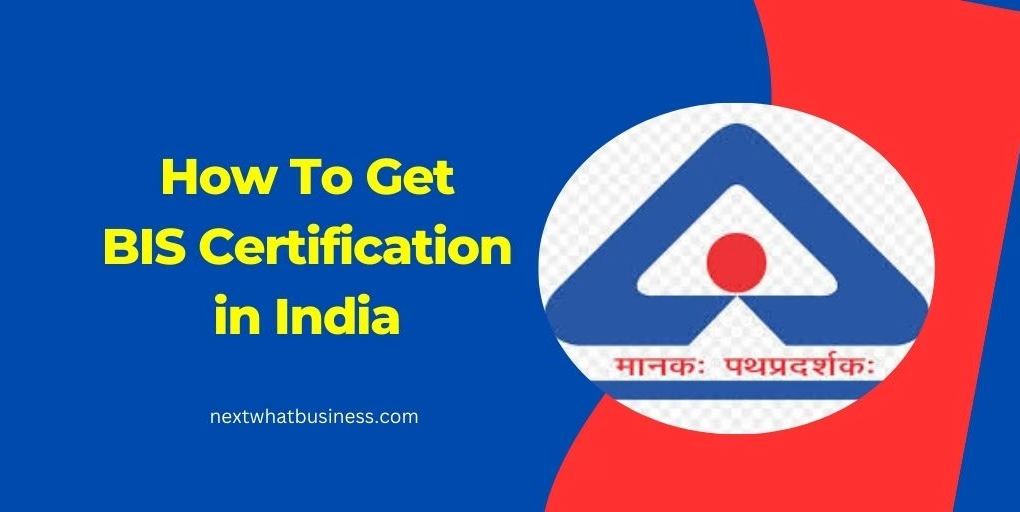BIS certification is a mandatory and crucial compliance process for many manufacturers and importers in India. Whether you’re in electronics, construction, or consumer goods, BIS ensures product quality, safety, and reliability. In this comprehensive guide, our compliance experts have explained the BIS certification process in India, types, costs, and how to get started.
Table of Contents
What is BIS Certification?
BIS (Bureau of Indian Standards) is the national standards body of India, under the Ministry of Consumer Affairs. BIS certification is a mark of conformity for products meeting Indian standards. The BIS mark, such as ISI or CRS, signifies that the product is safe, reliable, and compliant with Indian regulations.
Types of BIS Certification Schemes
- ISI Mark Scheme – For domestic manufacturers.
- Compulsory Registration Scheme (CRS) – For electronics and IT products.
- Foreign Manufacturers Certification Scheme (FMCS) – For overseas manufacturers exporting to India.
- Hallmarking Scheme – For gold, silver, and other precious metal items.
Who Needs BIS Certification?
- Indian manufacturers are producing regulated goods.
- Foreign manufacturers are targeting the Indian market.
- Importers of electronics, toys, kitchen appliances, and other mandatory items.
- Businesses involved in gold and silver jewellery.
Products Requiring Mandatory BIS Certification
- LED lights
- Mobile phones and accessories
- Electric irons and cables
- Cement
- Pressure cookers
- Packaged drinking water
- Toys
- Gold/silver ornaments (for hallmarking)
For the complete list, refer to https://www.bis.gov.in.
Step-by-Step Process to Get BIS Certification in India

A. ISI Mark Scheme (Domestic Manufacturers)
- Get the product tested in a BIS-approved lab.
- Apply online via the BIS Manak portal.
- Upload the required documents and pay the fees.
- BIS official inspects the factory.
- BIS grants a license if all criteria are met.
B. FMCS (Foreign Manufacturers)
- Appoint an Indian Authorised Representative (AIR).
- Apply with test reports.
- Pay fees and arrange an inspection.
- Get a license upon successful audit.
- C. CRS (Electronics/IT Products)
- Product testing in BIS-recognised labs.
- Register on the CRS portal.
- Submit an online application with documents.
- Receive a unique BIS registration number.
Documents Required for BIS Registration
- Business registration certificate
- Factory license or lease agreement
- Product technical specification sheet
- Test reports from BIS-approved labs
- Authorised signatory ID proof
- Filled application forms
Cost of BIS Certification
- Application fee: ₹5000–₹10,000 (varies by scheme)
- Testing charges: ₹10,000–₹30,000 per product/sample
- Inspection charges: Variable, includes travel & lodging (for FMCS)
- Annual license fee: ₹3000–₹5000
- Consultancy (optional): Additional based on the provider
Time Required
- ISI Scheme: 30–60 days
- CRS: 15–30 days
- FMCS: 3–6 months (due to international inspections)
Validity and Renewal
- Typically valid for 1–2 years.
- Renewal required before expiry.
- The renewal process involves updating documents and paying fees.
Benefits of BIS Certification
- Ensures product safety and quality
- Builds consumer trust
- Legally required to sell certain products in India
- Helps in brand building and market access
Common Challenges
- Rejection due to incomplete documentation
- Delays in testing or factory audit
- Language and location barriers (for FMCS)
- Understanding scheme-specific requirements
BIS Online Portal Guide
- Visit: https://www.bis.gov.in
- Navigate to the relevant certification scheme (ISI/CRS/FMCS)
- Register, upload documents, pay online
- Use the portal to track application status
Hiring a BIS Consultant: Pros and Cons
Pros:
- Save time and reduce errors
- Get expert help with documentation and audit readiness
- Faster turnaround
Cons:
- Additional cost involved
- Not always necessary for simple products
More Compliance Articles:
- FSSAI Registration Process in India
- How to Get Patent Registration in India
- Shop and Establishment Registration in India
Frequently Asked Questions (FAQs)
Is BIS certification mandatory?
Yes, for many products listed under the Compulsory Certification Scheme.
How much does BIS certification cost?
It varies from ₹20,000 to ₹60,000 depending on the product and scheme.
How long is BIS valid?
Typically for 1 or 2 years. Renewal is mandatory.
Can foreign companies apply?
Yes, under FMCS with an Indian representative.
What’s the difference between ISI and CRS?
ISI is for domestic goods. CRS is for electronics and IT products.
Conclusion
A BIS certification in India is essential for product quality, compliance, and market access. Whether you’re a startup or an established business, staying BIS-compliant will give you a competitive edge. Visit https://www.bis.gov.in for official information or consult a BIS expert if needed.

NextWhatBusiness Research Desk represents the editorial research function at NextWhatBusiness.
Content published under the desk is based on independent research, operator-level observations, and analysis of small, medium, and franchise-led business models in India.
The focus is on practical decision-making — including capital requirements, operational effort, and risk factors — rather than promotional or brochure-driven information.
Some articles reflect editorial judgment based on observed patterns and may include opinionated analysis where appropriate.
Editorial oversight is provided by Rupak Chakrabarty, Editor, NextWhatBusiness.



